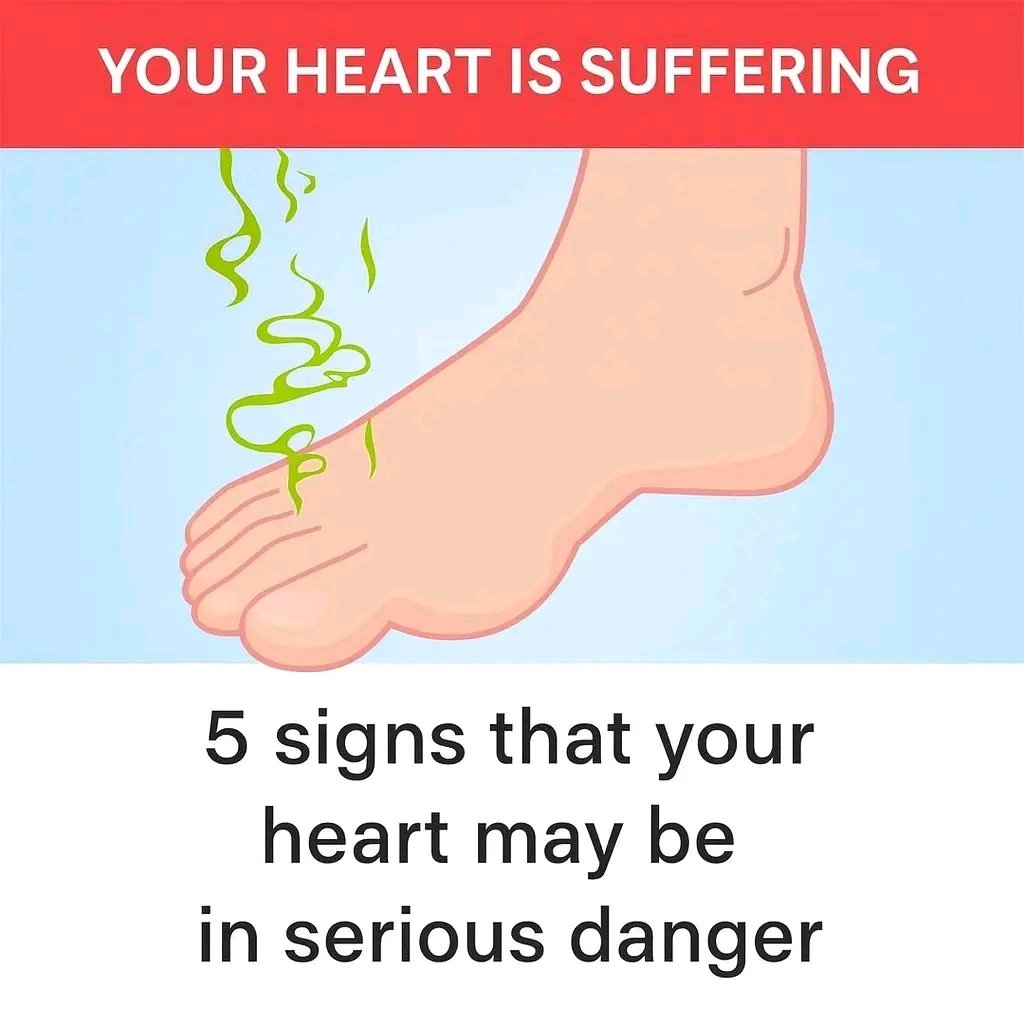5 Signs Your Heart May Be in Serious Danger ❤️⚠️

Your heart doesn’t always cry out for help with loud warnings. Sometimes, it whispers. Ignoring those whispers can lead to serious consequences. Heart disease remains one of the leading causes of death worldwide—but the good news is that it often shows signs before a major event like a heart attack.
Here are 5 important signs your heart may be in serious trouble. Don’t ignore them.
1. Chest Discomfort or Tightness
This is the most obvious red flag. It might not always feel like sharp pain—instead, you may experience:
- Pressure, squeezing, or fullness in the center of your chest
- Discomfort that lasts more than a few minutes or comes and goes
- Pain that spreads to the arms, back, neck, or jaw
Note: Women may experience more subtle chest sensations or discomfort in other areas.
2. Shortness of Breath (Even Without Activity)
If you find yourself gasping for air while doing routine tasks—or even while resting—it could indicate your heart is struggling to pump blood effectively. This symptom may come with or without chest pain.
3. Swelling in Feet, Ankles, or Legs
A weak heart can cause fluid to build up in the lower extremities. If your shoes feel tight or you notice puffiness in your legs that doesn’t go away, your heart might be failing to circulate blood properly.
4. Irregular or Rapid Heartbeat
Feeling like your heart is skipping a beat, racing without reason, or fluttering? Occasional flutters might be harmless, but frequent irregular rhythms (arrhythmias) could be a sign of an underlying heart condition.
5. Extreme Fatigue or Weakness
When your heart isn’t delivering enough oxygen-rich blood to your muscles and brain, you’ll feel worn out. If simple tasks like climbing stairs or grocery shopping leave you feeling exhausted, it might be more than just being out of shape—it could be heart trouble.
When to See a Doctor
If you notice one or more of these symptoms—especially if they happen regularly or get worse—don’t delay. Heart issues can escalate quickly. Early diagnosis and treatment can save your life.
Final Thought
Your body is always communicating. These symptoms are not just random—they may be signals from your heart that something is wrong. Listen to them. Taking action today can prevent a life-threatening event tomorrow. 🩺❤️
FAQs
1. Are heart symptoms different in women?
Yes. Women may have nausea, indigestion, back pain, or fatigue instead of chest pain.
2. Can young people have heart problems?
Absolutely. While age is a factor, stress, lifestyle, and genetics can affect heart health at any age.
3. What should I do if I feel chest pain?
Stop all activity, sit down, and call emergency services immediately if the pain is severe or lasts more than a few minutes.
4. How can I prevent heart problems?
Eat healthy, exercise regularly, avoid smoking, manage stress, and monitor blood pressure and cholesterol.






